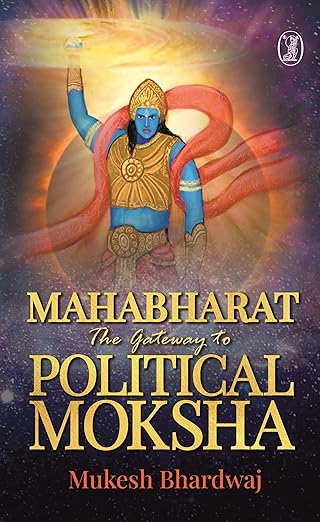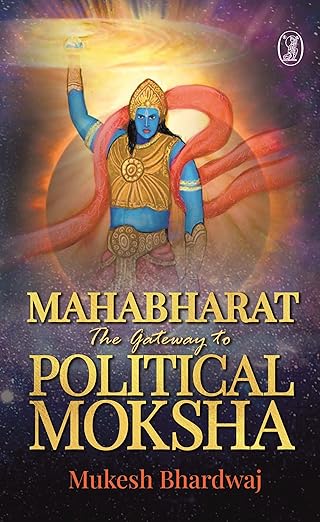Mahabharat : The Gateway to Political Moksha
Regular price
₹ 387
Sale price
₹ 387
Regular price
₹ 399
Unit price
Save 3%
| Item Weight | 400 Grams |
| ISBN | 978-9355184801 |
| Author | Mukesh Bhardwaj |
| Language | English |
| Publisher | Vani Prakashan |
| Pages | 180 |
| Book Type | Paperback |
| Publishing year | 2023 |
| Edition | 1st |
| Return Policy | 5 days Return and Exchange |

Mahabharat : The Gateway to Political Moksha
Product description
Shipping & Return
Offers & Coupons
The inhuman foeticide of the future of Abhimanyu gives us a measure to test the history of feudal system. Great grandfathers, elders, teachers and warriors who were revered and worshipped by the generations showed their ugly face by breaking every sacred norm of the battle. The weight of debris thus falls on the present and is never regarded as an ideal but remains something befitting for the waste basket.A number of 'great men' from the power elite-the Pandavs and the Kauravs, occupy the spotlight in the grand epic Mahabharat. These magnificent men and women continue to illuminate our imagination even though thousands of years have elapsed between their actions and our response to them.Tucked away in the epic is the quiet, dignified, but marginalized, life of Barbreek. He was the grandson of mighty Bheem (but of a tribal lineage) who had vowed to fight for the losing side in the great battle. Krishna knew if Barbreek entered the fray, he will battle for the losing side, the Kaurvas, and ensure their victory. Krishna persuaded Barbreek to agree to be beheaded before the war began on the condition that his severed head will stay alive to witness the battle Royale. Barbreek symbolizes the public. They have the power to turn the battle away from the elite, and to themselves but they are always persuaded not to join the war to sacrifice themselves for the sake of their leader's grand visions. Power politics, in other words, works only when, like Barbreek's severed head placed on the hill, the public is reduced to an incapacitated spectator in the game of thrones. Erudite Jansatta's Executive Editor Mukesh Bhardwaj examines Mahabharat's characters and consistently finds parallels in contemporary polity. This book offers a compelling perspective on politics, polity and persons from the Mahabharat and why they are relevant today.
- Sabr– Your order is usually dispatched within 24 hours of placing the order.
- Raftaar– We offer express delivery, typically arriving in 2-5 days. Please keep your phone reachable.
- Sukoon– Easy returns and replacements within 5 days.
- Dastoor– COD and shipping charges may apply to certain items.
Use code FIRSTORDER to get 5% off your first order.
You can also Earn up to 10% Cashback with POP Coins and redeem it in your future orders.








